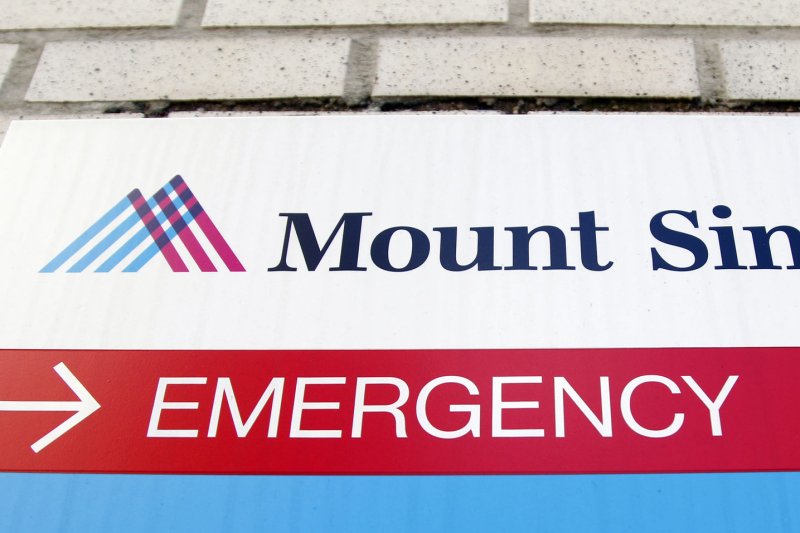A sign leading to the Mount Sinai Hospital emergency room stands on a brick wall in New York City on August 4, 2014. AUPI/John Angelillo |
License Photo
WASHINGTON, Aug. 6 (UPI) -- The Centers for Medicare and Medicaid Services used to make information available to the public on its website regarding the types of serious mistakes made by doctors and nurses, as well as the hospitals where they occurred. But no longer.
Those who want to see where and how often serious hospital mistakes occur are out of luck. The mistakes no longer being shared are things like air embolisms, giving a patient the wrong blood type, or leaving foreign objects inside surgery subjects.
CMS decided, after conferring with a range of stakeholders, to rethink the list of errors it would track and publicly report. By augmenting which errors were included, the agency made the list "more comprehensive and most relevant to consumers," spokesman Aaron Albright told USA Today in an email.
The new list of errors, like many other quality control guidelines used by public entities, was reviewed and approved by the nonprofit group National Quality Forum. But some members of the group say they were confused as to what they were approving.
Confused or not, advocates like Leah Binder, CEO of the Leapfrog Group, a group that issues hospital safety ratings, say quality forum and CMS made the wrong decision.
"People deserve to know if the hospital down the street from them had a disastrous event," Binder said, "and should be able to judge for themselves whether that's reasonable indicator of the safety of that hospital."
The types of errors that will no longer be tallied and advertised publicly online are what doctors, lawyers and others call "never events" -- preventable mistakes that shouldn't be made by healthcare professionals.
In 2012, John Hopkins University estimated that doctors were responsible for more than 4,000 never events each year. Now, keeping track of where those never events happen will be much harder for the average American.















